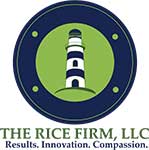Public interest law is defined as “the practice of law to further interests shared by the entire public or communities within it. The clients and issues handled by a public interest law firm reflect broad areas of public concern, such as illegal discrimination, poverty alleviation, consumer protection, and equitable education.” (“Public Interest”). This practice takes place in numerous settings including, but not limited to, educational and public international organizations, private public interest law firms, private law firms carrying out pro bono work, and all levels of government agencies (Harvard Law School).
Public interest work is an immensely important and meritorious area of law as it allows those among us who are underrepresented and unrepresented to receive the legal representation and assistance they need. These attorneys give a voice to the disadvantaged and systematically mistreated to make for a more equitable society, a goal we should all strive toward. In a 2009 lecture on the values of being a public interest attorney by Georgetown professor Philip G. Schrag, a quote by Albert Einstein is cited: “Striving for social justice is the most valuable thing to do in life.” The single sentence perfectly embodies the worth of this practice of law. Public interest attorneys spend their career pursuing justice and refusing anything less. In doing so, they create long-lasting positive changes in the lives and societies around them.
Alabama is riddled with issues relevant to public interest work. Two of the most pressing issues the state currently faces include environmental racism and the need for consumer protection in financial markets. Environmental racism occurs when governments or companies subject racial minorities and people of low socioeconomic standing to a detrimental standard of living by orchestrating communities in such a way that these individuals live near environmental hazards (Downey 2005). It is also evident in the refusal of many governments and organizations to meet the needs of these people groups when hazards are identified. It has been suggested that the well-known Flint, Michigan water problem is a prime example of environmental racism (Eligon 2016); however, not all cases of environmental racism pick up such traction with the general public. The vast majority of these situations remain unnoticed and undocumented.
The need for consumer protection in financial markets is another pressing issue for public interest attorneys in Alabama, particularly in regards to student loans, mortgages, and equal access to capital. Of baccalaureate students who borrow money for college, an astounding 27.2% graduate with what has been defined as excessive debt (Kantrowitz 2016). In the current economic climate and taking into consideration the depreciation of a college degree, students are being buried in insurmountable debt and taken advantage of by those providing loans. Similarly, mortgage fraud and unfair foreclosures have led to a dangerous world for mortgage borrowers. With supposedly reputable companies making unauthorized changes and extending loans, those who borrow money are at risk for manipulation and mistreatment that can lead to financial hardships (Morrell 2017). Access to capital is yet another area in which people are unfairly disadvantaged. According to the National Women’s Business Council, women-owned businesses start with half as much capital as men-owned businesses. Correspondingly, racial minorities and young entrepreneurs tend to be disfavored by bankers when attempting to acquire capital. Due to this inequality in access to capital, the people in these populations face greater difficulty in starting, maintaining, and growing new businesses (Robb 2013).
Public interest law is an essential practice area that assists in ensuring an equal playing field and proper representation for all who are faced with discrimination and inequity. The practice is particularly valuable to the state of Alabama due to the disadvantages embedded in the normative culture of our state. In Alabama, public interest attorneys help fight issues such as the ones discussed above and continue to fight for the best interests of society.
“Bureau of Consumer Protection.” Federal Trade Commission. Federal Trade Commission, 23 Sept. 2016. Web. 03 Aug. 2017. <https://www.ftc.gov/about-ftc/bureaus-offices/bureau-consumer-protection>.
Downey, Liam. “Assessing Environmental Inequality: How The Conclusions We Draw Vary According To The Definitions We Employ.” Sociological Spectrum 25.3 (2005): 349-69. Web. 3 Aug. 2017.
Eligon, John. “A Question of Environmental Racism in Flint .” The New York Times. The New York Times Company, 21 Jan. 2016. Web. 3 Aug. 2017.
Harvard Law School. “Public Service Practice Settings.” Harvard Law School. The President and Fellows of Harvard College, n.d. Web. 03 Aug. 2017. <http://hls.harvard.edu/dept/opia/what-is-public-interest-law/public-service-practice-settings/>.
Kantrowitz, Mark. “Why the Student Loan Crisis Is Even Worse Than People Think.” Time. Time Inc., 11 Jan. 2016. Web. 3 Aug. 2017.
Morrell, Alex. “Wells Fargo May be in Hot Water Again.” Business Insider. Business Insider Inc., 15 June 2017. Web. 03 Aug. 2017. <http://www.businessinsider.com/wells-fargo-mortgage-scandal-lawsuits-2017-6>.
National Women’s Business Council. Rep. National Women’s Business Council, n.d. Web. 3 Aug. 2017. <https://www.nwbc.gov/sites/default/files/Access%20to%20Capital%20Fact%20Sheet.pdf>.
“Public Interest.” The Rice Firm, LLC. The Rice Firm, LLC, n.d. Web. 03 Aug. 2017. <http://www.ricefirmllc.com/practice-areas/public-interest/>.
Robb, Alicia. Access to Capital among Young Firms, Minority-owned Firms, Women-owned Firms, and High-tech Firms. Rep. no. 403. U.S. Small Business Administration, Apr. 2013. Web. 3 Aug. 2017.
Schrag, Philip G. “Why Would Anyone Want to Be a Public Interest Lawyer?” Georgetown University Law Center. 2009. Web. 3 Aug. 2017. <https://law.duke.edu/curriculum/pdf/why_pi_lawyer.pdf>.
